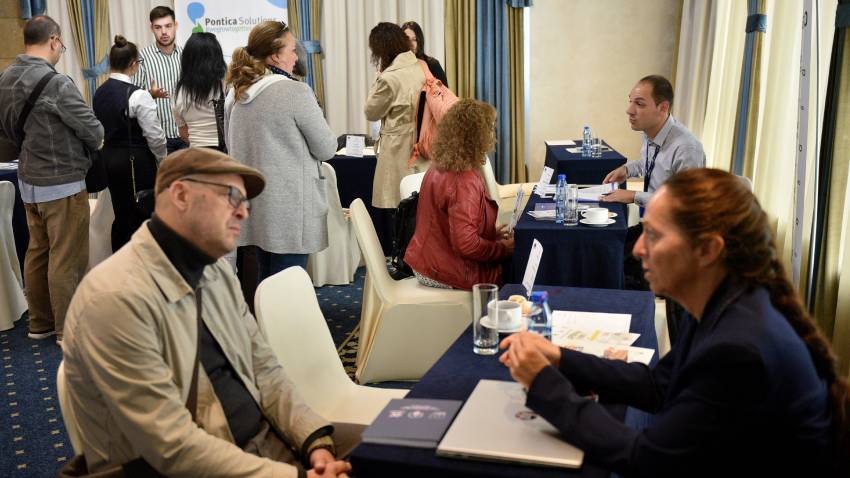Yet Bulgaria remains uncompetitive as regards payment and working environment
Employers in Bulgaria have been experiencing staff shortages for years – of both high and low-skilled workers. According to data of the Bulgarian Employment Confederation, the right people can be found for no more than 30% of the openings on the labour market. The main reason for this, the Confederation says, is that Bulgaria has an ageing population, while the young generation are not ready, or do not want to enter the labour market. 
There is also significant migration of Bulgaria’s working-age population towards the wealthier countries of Europe, attracted by better working conditions and higher pay. The imbalance between labour demand and supply has settled permanently in Bulgaria, experts say. The only way, albeit insufficiently utilized, to pump workers into the Bulgarian economy, is to attract workers from other countries. More than 23,000 people coming from non-EU countries received work permits in Bulgaria in 2023 alone. Every year, one of the biggest trade unions in Bulgaria – the Confederation of Independent Trade Unions in Bulgaria, CITUB, collects data and conducts a survey on labour migration and its role in the country’s labour market. According to the CITUB’s report, the new hires come from many different nationalities.
“A lot of people from countries which are not far from Bulgaria like Ukraine, Uzbekistan, Kirgizstan, Turkey received work permits in this country last year. But companies have been hiring people coming from more distant countries as well – like Brazil, the US, Nepal, Taiwan etc.,” Atanaska Todorova, trade union expert in the labour market, labour migration and mobility sector says in an interview with Radio Bulgaria.  Construction comes first, followed by the category of workers employed in industry – the processing industry, clothing. The number of foreign citizens employed in Bulgaria on a long-term basis has gone up by 66% in the space of one year, says Atanaska Todorova:
Construction comes first, followed by the category of workers employed in industry – the processing industry, clothing. The number of foreign citizens employed in Bulgaria on a long-term basis has gone up by 66% in the space of one year, says Atanaska Todorova:
“During the past year, almost 40% of the people who have received a residence and work permit, left Bulgaria in the first 6 months to go to other European counties. The problem with the labour shortage and providing workers from non-EU countries is connected with the fact that employers are unable to retain the incoming workers. Employers should think very carefully about what they can offer, especially in the category of short-term workers, because that is the category where payment is unattractive. The same holds true of the Bulgarian workers as well. In tourism, for example, they are hired for pay that is close to the minimum salary. In construction, salaries may be higher, but the working conditions there are far from satisfactory. So, even though a great many work permits have been issued to foreigners in 2023, the big challenge remains the pay, or how employers can retain these workers. And one of the reasons economic migrants leave their own country is to be able to support their families back home. Much like the Bulgarians working abroad – they want to be able to send money back to Bulgaria,” says Atanaska Todorova.
Translated and posted by Milena Daynova
Photos: freepik.com, BTA, archive
The cultural festival "Mysteries of Huhla 2024" is being held for the 26th consecutive time in the village of Huhla near the town of Ivaylovgrad. Until September 23, three ethnic groups—Bulgarians, Greeks and Turks—gather in the central square of..
Veliko Tarnovo hosts the 17 th International Festival of Military Brass Bands, the organizers from the Municipality of Veliko Tarnovo announced. This year, the festival will feature the Romanian Navy Military Band, the Guards Representative Brass..
Guests and residents of Sofia will have the opportunity to immerse themselves in the period of Late Antiquity and the reign of Emperor Constantius II, son of Constantine the Great. The reenactment is organized on September 21 and 22 by the Association..
Identity codes lie at the basis of genealogy – the science of tracing the bloodline, the origin of humans, family ties. Identity codes is what sets us..
After the start of the school year – in Bulgaria it is always on 15 September – comes the start of the new academic year for university students, with..

+359 2 9336 661
